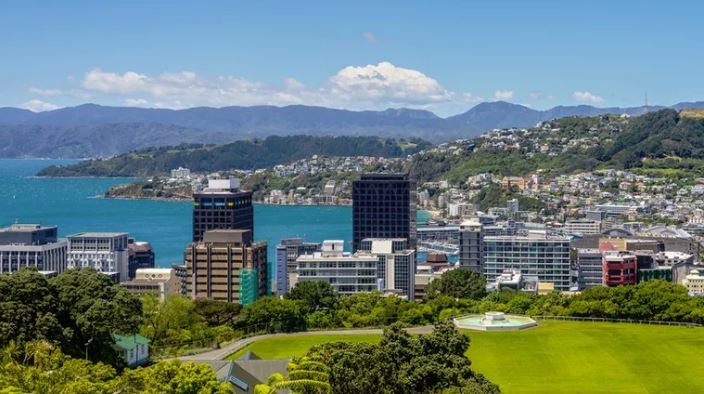New Zealand’s Prime Minister, Jacinda Ardern, is fulfilling her early promise to tackle the country’s soaring property prices.
Ardern ‚Äì who seems to be taking over from Justin Trudeau as the global media‚Äôs latest, youngest, hippest nation leader¬Ýdu jour¬Ý‚Äì promised last fall after her election that non-resident buyers would not be permitted to purchase existing homes anywhere in New Zealand (while also announcing a crackdown on immigration). It has just been confirmed, on August 14, that this policy will go ahead.
Just like in Canada, New Zealand‚Äôs larger cities have seen a severe housing supply shortage and home prices have soared in the past decade, rising around 18 per cent year over year in its capital, Wellington. The largest city, Auckland, was by The Economist as the world‚Äôs second most overvalued city for real estate, with New Zealand the world‚Äôs most overvalued country. Only a quarter of adults in New Zealand own their own home, compared with half in 1991, according to an August 15 (and compared with 63.7 per cent in Metro¬ÝVancouver¬Ýand 66.5 per cent in¬ÝToronto, according to¬ÝCanada‚Äôs 2016 Census).
And, just like in –°¿∂ ”∆µ‚Äôs provincial election, affordability, lack of supply and foreign ownership and speculation (particularly from China) were key issues in the country‚Äôs general election last September. So Ardern was duty-bound to make a big move once in office.
The policy is bound to be popular among New Zealanders, many of whom feel they have been pushed out of the housing market. But the question is, will the ban make a difference?
∞’≥Û±Ã˝≥“≥Ð≤π∞˘ªÂæ±≤π≤‘Ã˝∞˘±±Ë¥«∞˘≥Ÿ says, ‚ÄúAccording to the latest figures from statistics New Zealand, 3.3 per cent of homes sold in the last quarter were to foreigners, with the bulk of the buyers Chinese, followed by Australians.‚Äù
This suggests that an outright ban would remove only three per cent of New Zealand’s property buyers, which is hardly likely to make a huge difference to the overall market.
Potential policy shock
What might make more of a difference to New Zealand’s housing market – at least in the short term – is a “policy shock” just like the one seen in Metro Vancouver following 2016’s introduction of the 15 per cent overseas buyer tax. Which is to say that, rather than only overseas buyers pulling out of the market, the entire system freezes temporarily as locals and non-locals alike wait to see what effect the new policy will have on prices. This has the self-fulfilling effect of halting sales, and price growth, until people get used to the “new normal” and the system unfreezes, as it is bound to do. After all, people still have to buy and sell homes.
It's also worth noting that overseas buyers will still be able to buy New Zealand presale homes off-plan, as the government doesn’t want to halt construction of new homes, with supply already so limited. What’s more, the ban doesn’t apply to residents of either Australia (which make up the second-largest group of New Zealand's overseas buyers) or Singapore.
Exemptions aside, it’s disconcertingly easy to get around these kinds of bans. Overseas buyers who still want in on New Zealand resale real estate can find loopholes such as using resident proxy buyers, New Zealand-based shell companies, and so on.
So it’s reasonable to expect that a large proportion of those three per cent of overseas buyers will still find a way to invest, whether it’s by reallocating their funds to presale real estate, or to commercial real estate, or simply by being exempt.
Could –°¿∂ ”∆µ follow suit?
Naturally, leaders and industry insiders in –°¿∂ ”∆µ are watching New Zealand with interest, to see if it will ‚Äúwork‚Äù in terms of making homes more affordable. According to a¬Ý published when the New Zealand ban was proposed in fall 2017, Green Party leader Andrew Weaver said he admired the policy and hoped –°¿∂ ”∆µ would impose a similar ban. ‚ÄúIt‚Äôs not about stopping people from owning homes who live here and pay taxes,‚Äù he said. ‚ÄúIt‚Äôs about ensuring British Columbians can live in homes in British Columbia.‚Äù
But the same 2017 Global story also reported U–°¿∂ ”∆µ Sauder School of Business professor Tom Davidoff as saying that he doubts the ban will be effective. ‚ÄúI tend to believe restrictions [and] bans are hard to enforce at times. We had it here in British Columbia even with the foreign buyer tax.‚Äù And in January this year, –°¿∂ ”∆µ Premier John Horgan on the idea of imposing a similar ban in –°¿∂ ”∆µ, instead widening and increasing the foreign buyer tax.
My guess as to whether the New Zealand ban will help with housing affordability? I agree with Davidoff on this one. I think that, like in Vancouver, and once any potential policy shock is out of the way, New Zealand’s desirability and convenient Pacific Rim location will mean that buyers will just keep on buying. If anything, Ardern’s immigration crackdown may have more of a long-term effect on the housing market, if population growth stalls and local demand softens.
In the meantime, the popular young Prime Minister will earn some kudos from her adoring voters for addressing the housing crisis. We’ll see…




